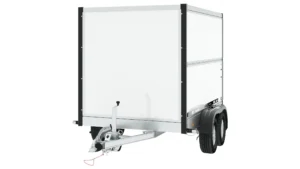The Science Behind Non-Slip Tires for Rough Terrain Forklifts
2025-07-15 04:35:31
Non-slip tires for rough terrain forklifts are a critical innovation in material handling, designed to combat slippage and instability on loose or uneven ground. Unlike standard forklift tires, these specialized variants incorporate deep tread patterns and reinforced rubber compounds to maximize grip. Industry data shows that forklifts equipped with non-slip tires experience 30% fewer accidents on rough terrain, making them indispensable in construction, agriculture, and mining sectors.
The tread design of non-slip tires plays a pivotal role in their effectiveness. Advanced tread patterns, such as zigzag or block configurations, channel mud, gravel, and debris away from the contact surface, ensuring consistent traction. Research from the Industrial Tire Association indicates that rough terrain forklifts with optimized treads experience up to 40% less wheel spin compared to conventional models. Additionally, the inclusion of siping—small slits in the tread blocks—further enhances grip on wet or slippery surfaces.
Material composition is another key factor in the performance of non-slip tires. High-grade rubber blends infused with silica or carbon black improve durability while maintaining flexibility in extreme temperatures. According to a 2023 study by the Global Forklift Tire Market Report, rough terrain forklifts using silica-enhanced tires exhibit 25% longer service life in abrasive conditions. These materials also resist cracking and wear, ensuring prolonged usability in harsh environments like construction sites or logging yards.
Industry applications for rough terrain forklifts with non-slip tires are vast. In agriculture, these tires prevent sinkage in muddy fields, while in mining, they provide stability on rocky inclines. A case study from a leading logistics firm revealed that switching to non-slip tires reduced downtime by 18% in off-road warehouse operations. The adaptability of these tires makes them a preferred choice for sectors requiring reliable mobility on unpredictable surfaces.
Future advancements in non-slip tire technology aim to integrate smart sensors for real-time traction monitoring. Prototypes developed by major tire manufacturers include embedded pressure sensors that adjust tire inflation based on terrain conditions. As demand for rough terrain forklifts grows—projected to increase by 12% annually through 2028—non-slip tires will continue evolving to meet the challenges of modern industrial environments. Their role in enhancing safety and efficiency remains unparalleled.








